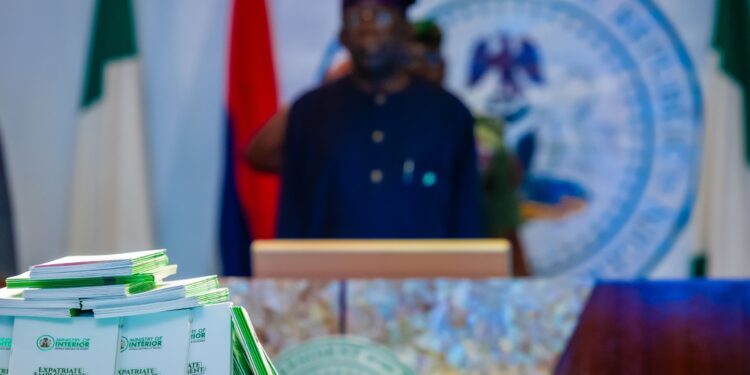The Centre for Promotion of Private Enterprise, (CPPE) led by Dr. Muda Yusuf has stated that the new Expatriate Employment Levy (EEL) from the federal government may trigger reciprocal actions against Nigerian and negatively impact regional integration of ECOWAS and across Africa.
Dr. Muda Yusuf disclosed this in a statement reacting to the new policy initiative by the Pres. Tinubu administration where he said that the new policy will discourage investment in the real sectors of the economy.
According to him, the policy does not place a restriction on workers from other African countries despite Nigeria’s leadership role in the continent.
- He stated, “Nigeria occupies a leadership position in Africa and very well respected. Our president is the current chairman of ECOWAS. This policy does not make an exception for our African brothers and neighbours.”
“There are serious implications for diaspora Nigerians. The policy may trigger reciprocal actions from other countries, and this may affect Nigerians in diaspora. There are currently over 17 million Nigerians in various countries around the world doing extremely well. - “We have the largest diaspora population in Africa. We also have the highest diaspora remittances on the continent, generally in excess of $20 billion. All of these could be at risk as a result of this policy.
- “If the reciprocity policy is activated in any of their host countries, the effect on our diaspora citizens will be very devastating.”
Furthermore, the group noted that the four weeks compliance time is too short and recommended a six-month period.
Backstory
The federal government recently introduced the Expatriate Employment Levy (EEL) which plans to impose a levy on companies employing foreigners in the country.
The Federal Government’s latest initiative is anticipated to enhance revenue collection, boost job creation for Nigerians in foreign-operated companies within Nigeria, narrow the salary disparities between expatriate and Nigerian employees, among various other advantages.
Source- Statement from the CPPE,
Tags-




















The Nigerian Government has just introduced an Expatriate Employment Levy on companies that sponsor foreign workers in Nigeria.
Here are some reasons why:
1. The Nigerian Government wants to digitize the filing of monthly expatriate returns and compliance monitoring.
The Nigerian Government wants to closely regulate/plug the gaps in the grant and administration of expatriate quotas.
2. The Nigerian Government is calling on skilled Nigerian workers, home and abroad, to “step up to the plate”.
3. Employers of foreign skilled workers still employ a disproportionate number of expatriates, notwithstanding that the relevant skills may be available locally, hence the need to “promote skills transfer and knowledge sharing”.
4. Employers of foreign skilled workers are not prioritizing the transfer of technical skills to Nigerians, hence the need to “promote skills transfer and knowledge sharing”.
5. The earnings of expatriate employees are significantly higher compared to those of their local counterparts, who may be more qualified, hence the need to “balance economic growth and social welfare”.
6. The Nigerian government wants to open up more employment opportunities for Nigerians, especially given the increasing migration of talent from Nigeria.
It’s ok if it triggers reciprocal gestures from other countries. How many Nigerians are working as “expatriates” offshore with 100x pay the same way some others are doing in Nigeria? Every country protects its citizens somehow. For example, the UK will never give Nigerians jobs that its cotizens can easily take up. It’s a fair policy.